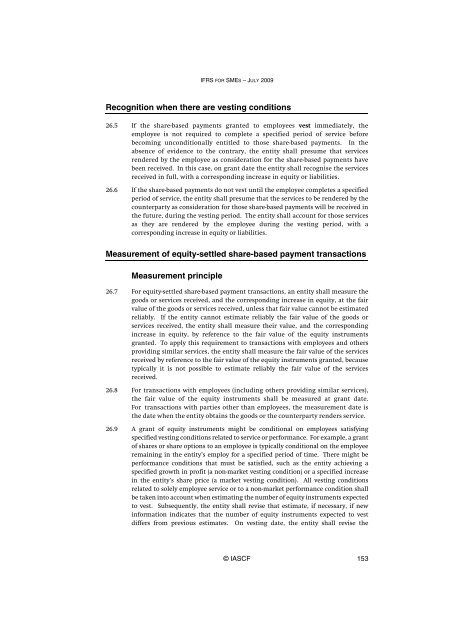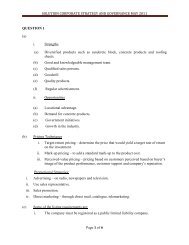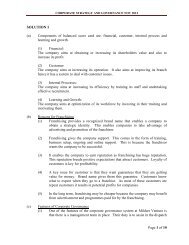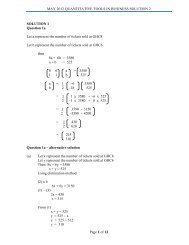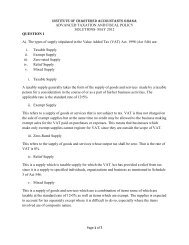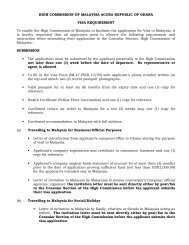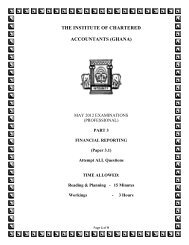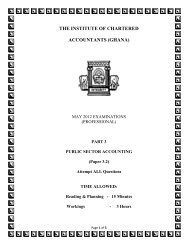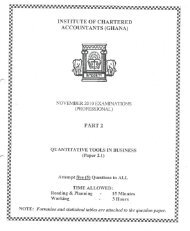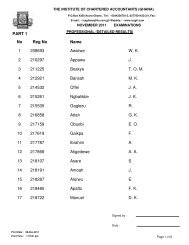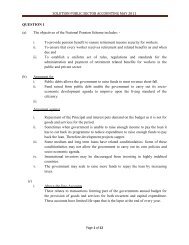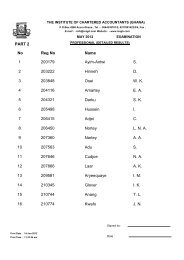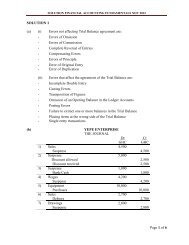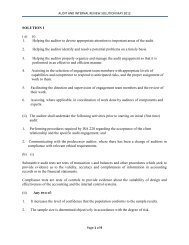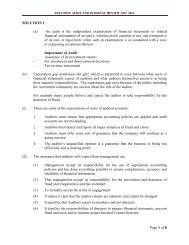(IFRS) for Small and Medium-sized Entities (SMEs)
(IFRS) for Small and Medium-sized Entities (SMEs)
(IFRS) for Small and Medium-sized Entities (SMEs)
Create successful ePaper yourself
Turn your PDF publications into a flip-book with our unique Google optimized e-Paper software.
<strong>IFRS</strong> FOR SMES – JULY 2009Recognition when there are vesting conditions26.5 If the share-based payments granted to employees vest immediately, theemployee is not required to complete a specified period of service be<strong>for</strong>ebecoming unconditionally entitled to those share-based payments. In theabsence of evidence to the contrary, the entity shall presume that servicesrendered by the employee as consideration <strong>for</strong> the share-based payments havebeen received. In this case, on grant date the entity shall recognise the servicesreceived in full, with a corresponding increase in equity or liabilities.26.6 If the share-based payments do not vest until the employee completes a specifiedperiod of service, the entity shall presume that the services to be rendered by thecounterparty as consideration <strong>for</strong> those share-based payments will be received inthe future, during the vesting period. The entity shall account <strong>for</strong> those servicesas they are rendered by the employee during the vesting period, with acorresponding increase in equity or liabilities.Measurement of equity-settled share-based payment transactionsMeasurement principle26.7 For equity-settled share-based payment transactions, an entity shall measure thegoods or services received, <strong>and</strong> the corresponding increase in equity, at the fairvalue of the goods or services received, unless that fair value cannot be estimatedreliably. If the entity cannot estimate reliably the fair value of the goods orservices received, the entity shall measure their value, <strong>and</strong> the correspondingincrease in equity, by reference to the fair value of the equity instrumentsgranted. To apply this requirement to transactions with employees <strong>and</strong> othersproviding similar services, the entity shall measure the fair value of the servicesreceived by reference to the fair value of the equity instruments granted, becausetypically it is not possible to estimate reliably the fair value of the servicesreceived.26.8 For transactions with employees (including others providing similar services),the fair value of the equity instruments shall be measured at grant date.For transactions with parties other than employees, the measurement date isthe date when the entity obtains the goods or the counterparty renders service.26.9 A grant of equity instruments might be conditional on employees satisfyingspecified vesting conditions related to service or per<strong>for</strong>mance. For example, a grantof shares or share options to an employee is typically conditional on the employeeremaining in the entity’s employ <strong>for</strong> a specified period of time. There might beper<strong>for</strong>mance conditions that must be satisfied, such as the entity achieving aspecified growth in profit (a non-market vesting condition) or a specified increasein the entity’s share price (a market vesting condition). All vesting conditionsrelated to solely employee service or to a non-market per<strong>for</strong>mance condition shallbe taken into account when estimating the number of equity instruments expectedto vest. Subsequently, the entity shall revise that estimate, if necessary, if newin<strong>for</strong>mation indicates that the number of equity instruments expected to vestdiffers from previous estimates. On vesting date, the entity shall revise the© IASCF 153


